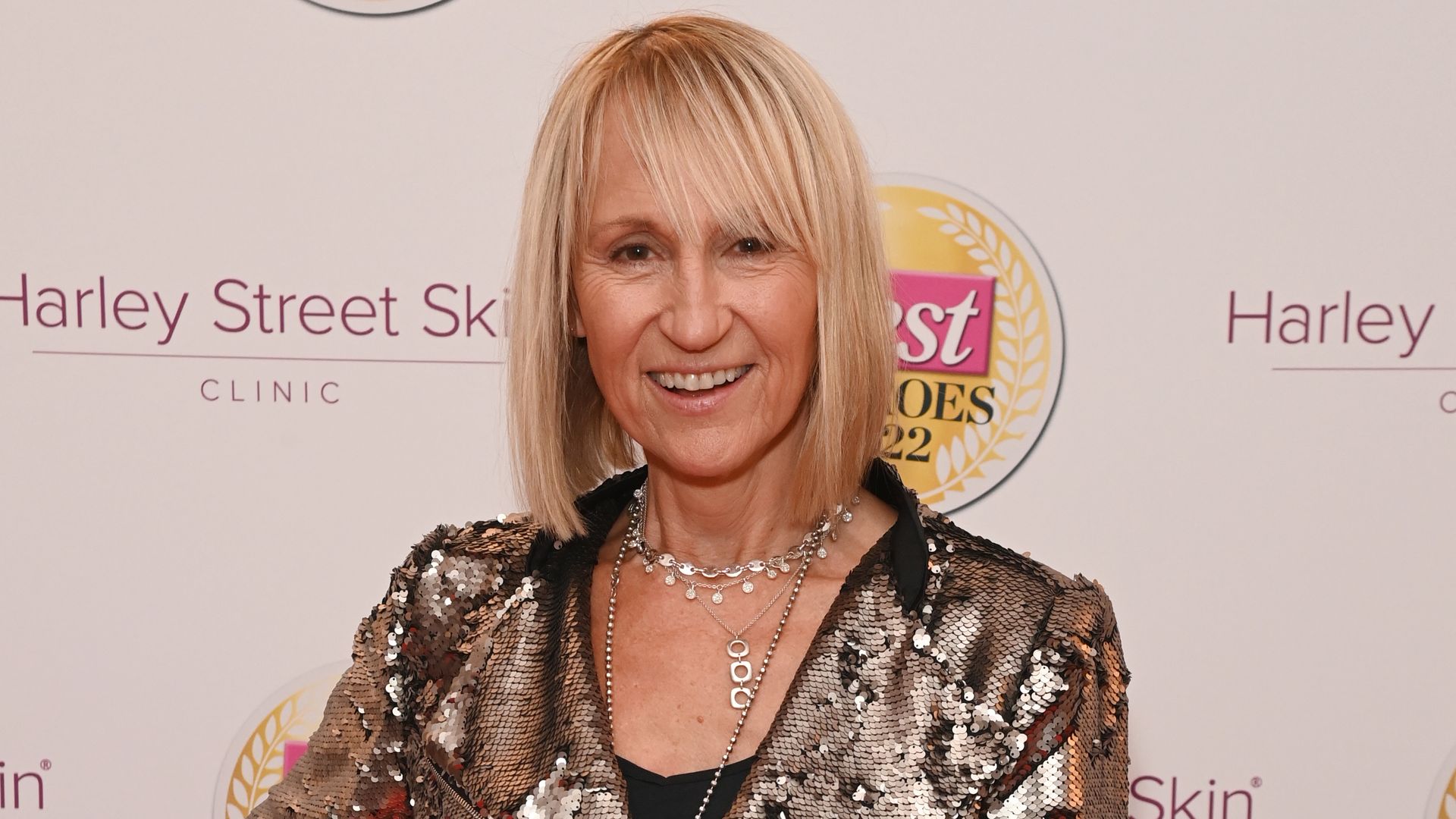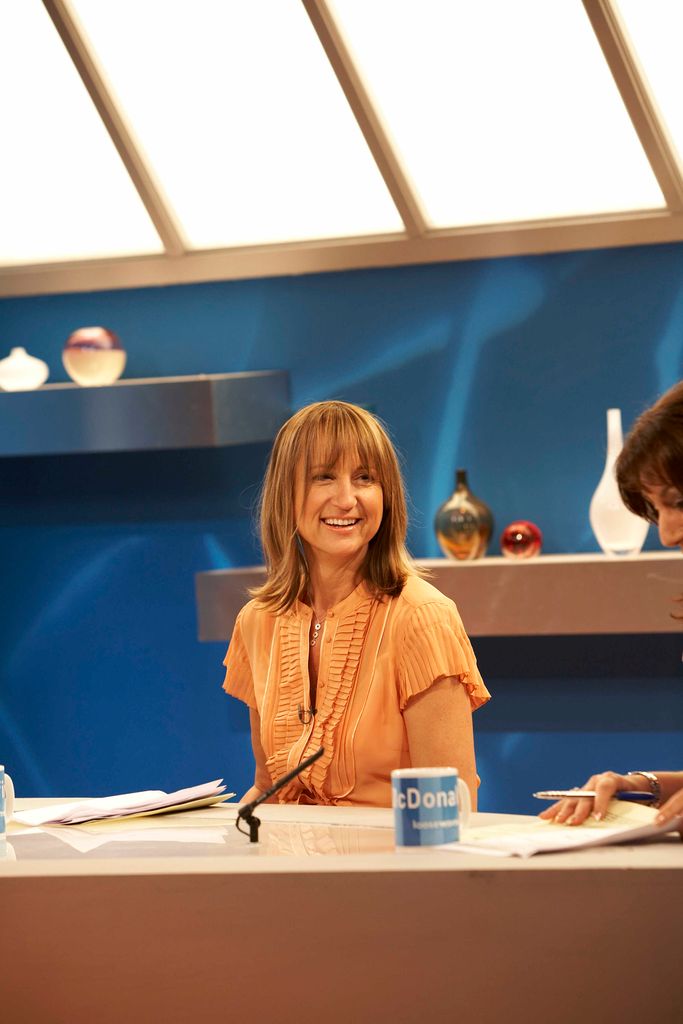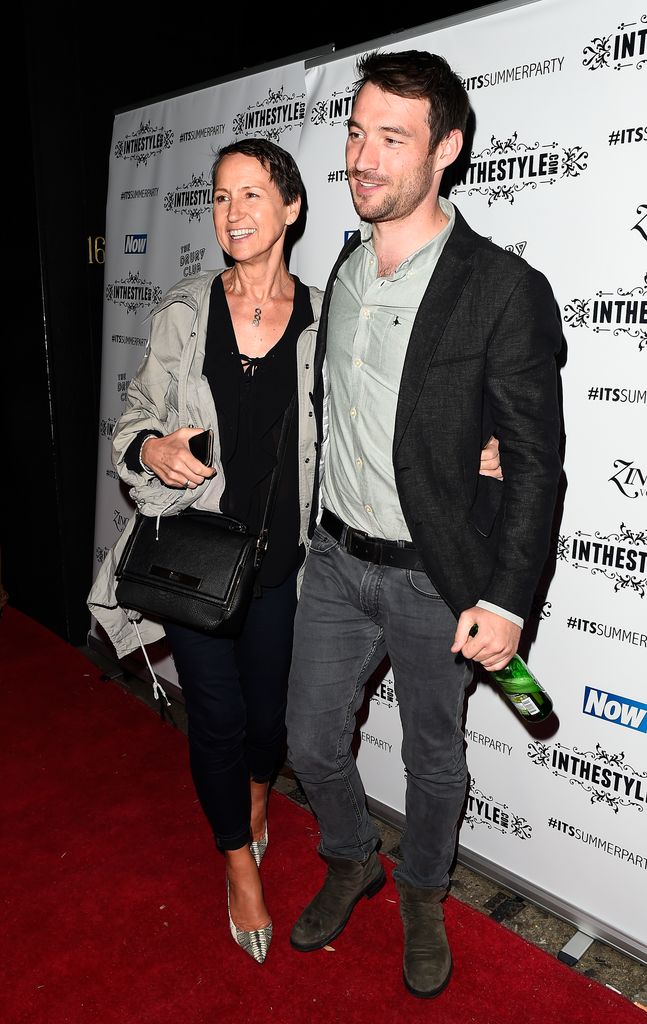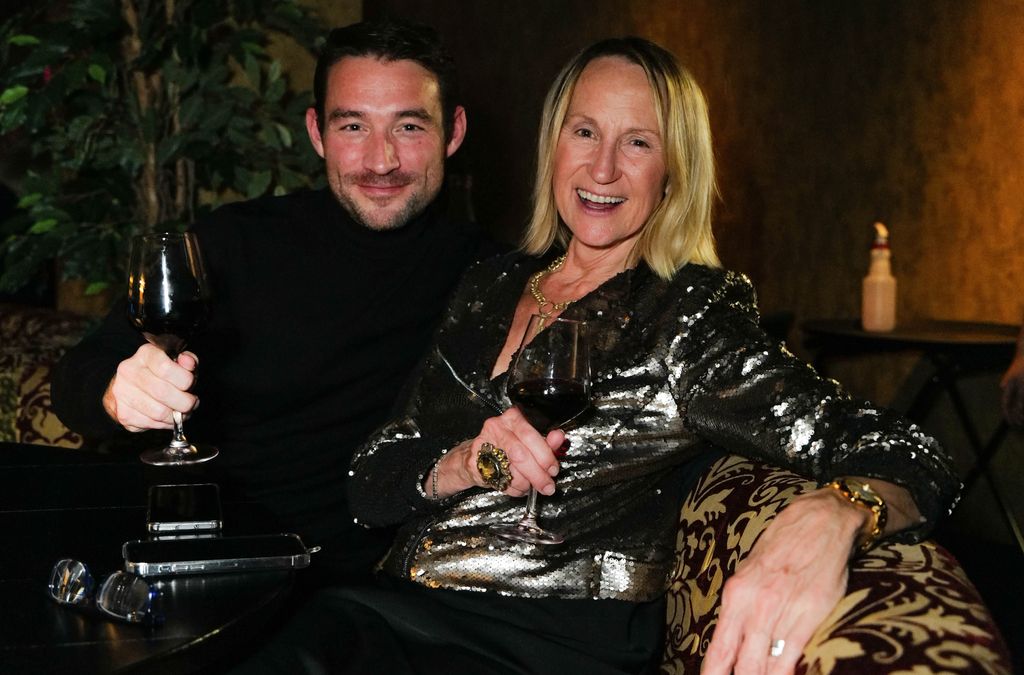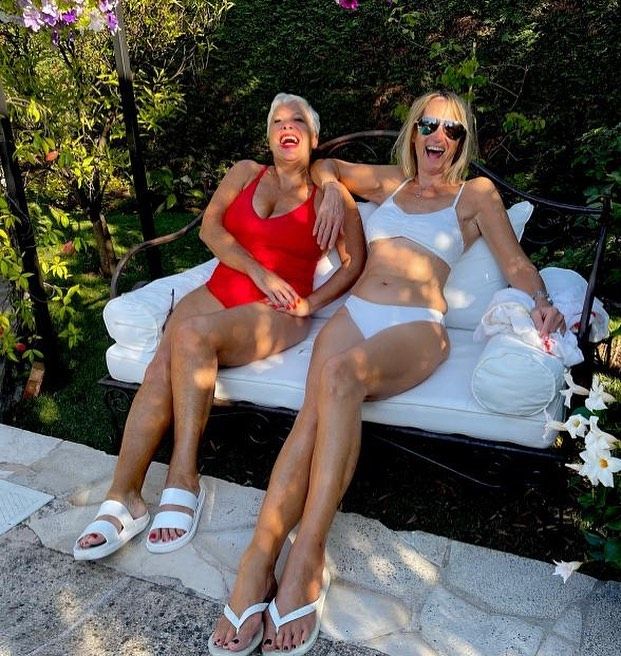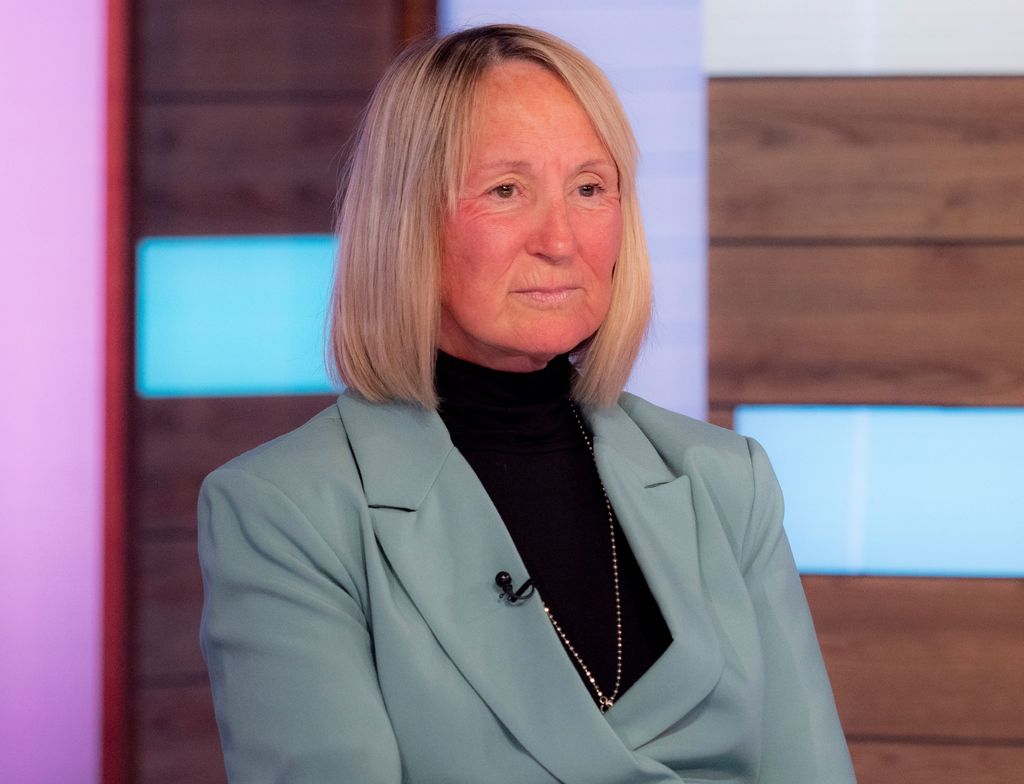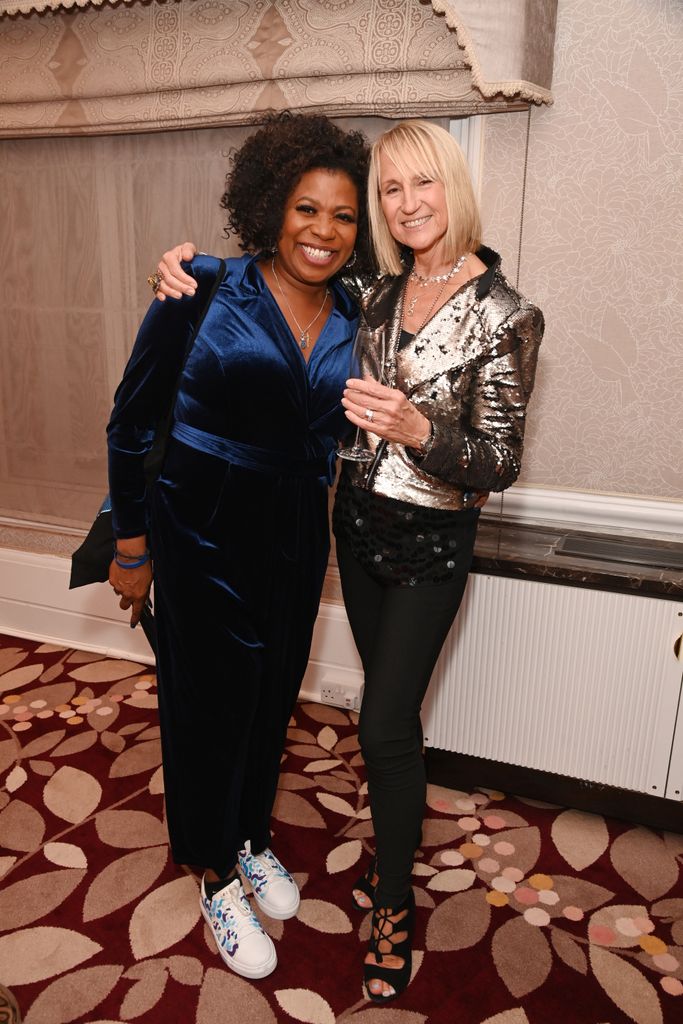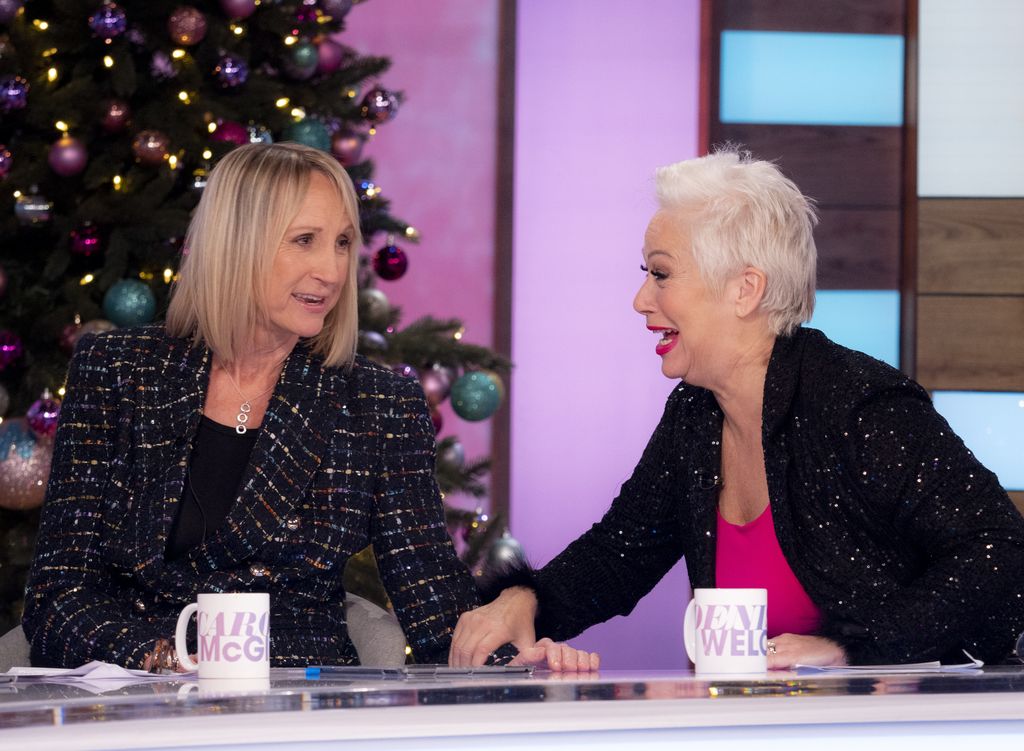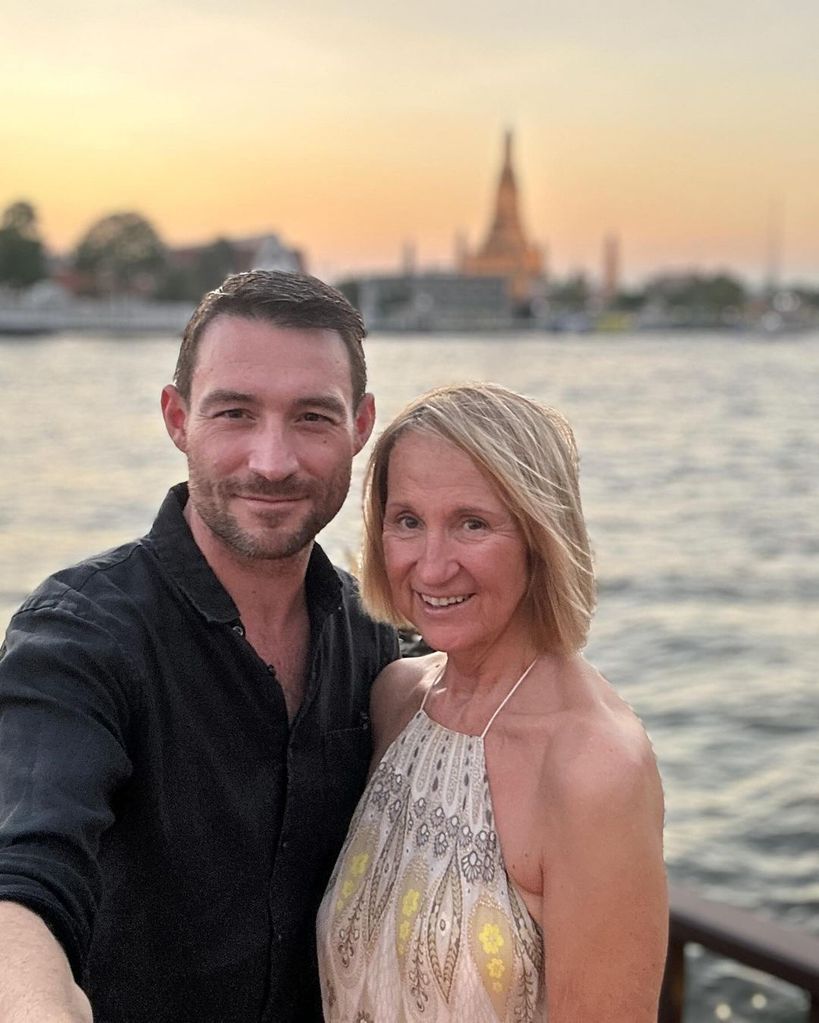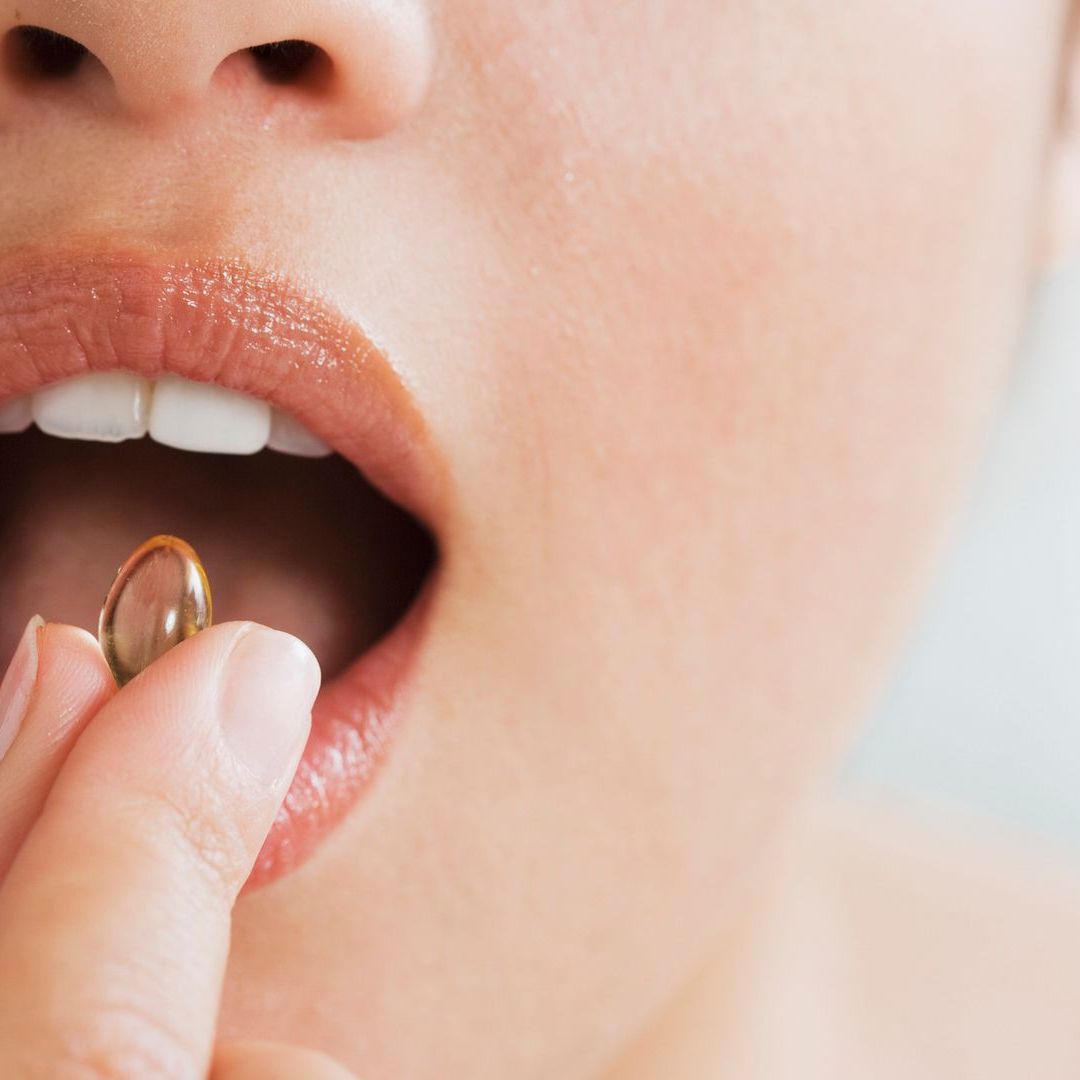Former Loose Women presenter Carol McGiffin recently celebrated ten years cancer free.
HELLO! looks back at the star's difficult health history, and how she's coped along the way...
Cancer
Carol was diagnosed with breast cancer in 2014.
At the time, she told The Mirror: "I don't want to pretend any more. I kept it a secret because I didn't want anyone feeling sorry for me. I feel it is over now and I've got through it. I just want to be able to go out without my hat on and for people not to be bothered. I just want my life to get back to normal."
Carol praised the staff who looked after her at the Royal Free Hospital in London, saying that the doctors and nurses "all deserve a medal".
After her diagnosis, Carol was given the all-clear in September 2015 after six rounds of chemotherapy, radiotherapy and a mastectomy.
Speaking to Closer, Carol said: "If you think about something too much, it becomes terrifying... The chemo was an insurance policy. The first round was a piece of cake, but the effects are cumulative so, by the time you get to the sixth one, you feel absolutely shocking. It knocked me for six, but I tried to carry on as normal. When I absolutely couldn't, I gave into it and in a weird way, I enjoyed giving in to it. "
Support system
Carol credited her then-fiancé Mark Cassidy for being a rock for her throughout her treatment, saying in interviews with the Mirror and the Sunday People that he had been "unbelievable".
She touchingly shared that humour had been key in helping keep the couple steady through the difficult time: "Mark has lifted my spirits. I sometimes wake up and he is walking around with my wig on. He keeps saying, 'Oh, you've got a great shaped head.' I reply, 'Well, that makes it all right then.' We have a good laugh."
The presenter is now looking ahead, saying: "Normal service is resumed. If it comes back I'll deal with it. It's not a battle. I just see it as a bit of a health hiccup. For now I'm going to get on with my life and enjoy every minute of it."
Carol's tragic family connection to cancer
In 2017, Carol confirmed that her younger sister Tracy had died from cancer.
"Cancer is scary, but I don't see the point of getting emotional about it," the former Loose Women star wrote Best Magazine. "So when my sister, Tracy, found a lump in her left breast – just like mine – three months ago, I said: 'Right, we'll find out what the treatment is, deal with it, and you'll be fine.'
"But she wasn't fine. I think, deep down, Tracy knew it was bad news. She'd been having massive headaches, and her co-ordination was off – she kept bumping into things."
In a tragic turn, the family were told that Tracy's cancer was metastatic, meaning that it had already spread from her lung to her spine, liver, brain and to her breast.
Carol also wrote in her Best Magazine column that she'd hoped she would have longer with her younger sister.
"We were always close as kids, but as we grew up things changed, and I'm really glad that in the end - those last four months - I got to spend some good, quality time with her. We had days out at the seaside, went out shopping, had lovely pub lunches. I felt like I was getting to know her all over again."
Her mother also tragically died from cancer.
What has Carol said about her cancer journey?
On Loose Women, Carol opened up about her decision not to have reconstructive surgery after her mastectomy in 2014.
"I've been over it for eight years nearly, and I don't think about it all the time, I try not to, but there is a constant reminder with the scar," she told fellow panelists Christine Lampard, Frankie Bridge and Kelle Bryan.
"Ever since I had the mastectomy, I've wanted to have the reconstruction because I want my body to look what I would think would be normal again."
Carol often posts via social media in bikinis and raises awareness of body image after surgery.
"I don't like the idea of that part of me missing and being so asymmetrical, but at the same time, I can't bring myself to do it because I don't want to put myself through it just in case the cancer comes back.
"Because it's always a risk and if it comes back you know the month after I've been in hospital for two months... I don't know... I can't square that," she continued.
Shortly after the show aired, the official Instagram account posted to thank fans for the inundation of support they'd received following Carol's openness and vulnerability.
Why did Carol leave Loose Women?
Writing in Best Magazine, Carol said her departure was due to stress, also related to contract issues: "I've had to step away from it, it was causing me too much stress."
She wrote: "If I wanted to carry on doing the show, I would have to sign a contract that was totally unjust and unworkable for me, so I had to say no thanks." The 63-year-old also said the ordeal was affecting her health.
Many fans were concerned when Carol's face appeared red and inflamed on a Loose Women appearance. "It looks like I've had some kind of cosmetic procedure", she told fellow panelist Kaye Adams. "I just woke up and my face was like a tomato, seriously red face and itchy."
At the time, she explained to viewers that she'd decided not to wear make-up in case it made the condition worse, a move which was met by approval from fans. One said: "Good on Carol, women shouldn't have to coat themselves in makeup, or feel like they have to."
Leaving the show seems to have helped with her skin, as Carol noted that she hadn't had a flare-up since leaving the show.
How did her fellow Loose Women hosts react to her departure?
Her fellow panelists were quick to share their support. Brenda Edwards wrote: "Carol, I always enjoy when you are on as we have such a laugh, but you of course must always do what is best for you! I really hope I get to see you again love you lots lovely lady. Keep Smiling."
Coleen Nolan added: "Oh Carol I’ll miss you so much! But you're right, you shouldn't be dealing with stress!" while Frankie Bridge wrote: "Gutted Carol."
Carol's struggles with mental health
The broadcaster also struggled with her mental health during lockdown. Speaking on Loose Women, she said: "I have to say now during this lockdown and the stress that's going through everybody's mind at the moment, the sleep problems I'm having, the terrible anxiety dreams I'm having, everything else. I've never felt so close to seeking help in my whole life, and I'm quite old.
“I think I've escaped quite well so far and some days I must say I've got to the point where I think 'I can't get out of bed today'."
The star also nodded to her co-host Denise Welch, who has notably struggled with depression for many years. Carol explained how her own difficulties had made her appreciate what Denise had been through all the more: "I've always been very sympathetic but I've never really understood how bad that can be. I am getting very close to it now with this because I can't see an end in sight to any of it and the future scares me, my health scares me, everything scares me."
Carol's decision to become celibate
After she turned 40, Carol told The Mirror that she became celibate for seven years until she met her now-husband Mark Cassidy.
She told the publication: "After being so into sex all my life since I was a teenager, I didn’t actually miss it. And about a year after that my mum died and I wasn’t interested at all.
“The grieving process took a long time for me and sex was something I just didn’t think about anymore, I lost my mojo."
How can grief affect your sex life?
HELLO! spoke to Cristina Vrech, couple's counsellor and director of the Leone Centre. She said: "When someone is grieving, it's natural to feel a disconnect from their body and sexuality. They might not feel interested in sex, or they could notice changes in their sexual desires. This can show up in various ways: some people might experience a drop in sexual desire or activity, while others might find their interest increases."
Cristina also exclusively told HELLO! the reasons many like Carol experience changes in their sex lives after loss of a loved one, including emotional overload, physical exhaustion, focus on loss and emotional numbness.
"After losing someone significant, our priorities often shift. Immediate emotional survival and dealing with practical matters may take precedence over sexual intimacy.
"Understanding these reasons can help those in mourning be kinder to themselves. It’s so important to recognize that changes in sexual desire during grief are a normal response to an extraordinarily difficult experience," said Cristina.
